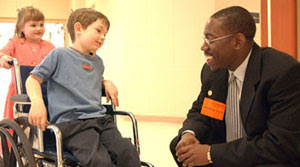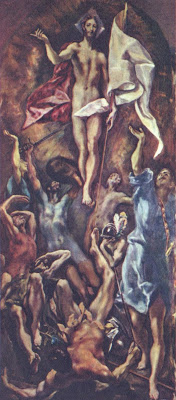6Easter Tuesday (15 May 2007)
Ac 16. 22-34; Ps 138; Jn 16. 5-11Homily of Fr. Paul Panaretos, S.J.
A Key DifferenceJesus had warned his disciples that they would be persecuted for continuing his work. For us, who can freely worship God, that is hard to appreciate. Paul and Silas were
attacked, stripped, beaten and imprisoned, at the outset of Paul’s first preaching campaign in Europe.
God rewarded their faithful efforts not only by freeing them. God worked through Paul’s resourcefulness: Paul used the moment of crisis for the
jailer and preached the gospel to him and his household, which responded and
came to faith in God.
That calls us to remember two important things about the
world. First God created the world and saw that it was
good and that humans were
very good. Second, a power envied this goodness. The tempter, the enemy of our human nature, as St. Ignatius was fond to name the tempter, made the world the theatre of the tempter’s operations.
The enemy of our human nature was Jesus’ principle enemy--not the world. Jesus named his archenemy the
ruler of this world, as the Fourth Gospel reminded us.
Because we continue Jesus’ work, because we strive to follow Jesus,
the ruler of this world, the enemy of our human nature, is also our archenemy and that of all disciples.
The way the struggle plays differs according to time, place, and even human being. The language of the Fourth Gospel about the
world is ironic: as the theatre of operations of the enemy of our human nature, the
world is a risky place for believers. It is risky because of Jesus’ archenemy. The world is not evil.
Remembering that difference makes clearer our way in
faith. It also helps others to
come to faith in God in ways that befit both God’s goodness and our own.









